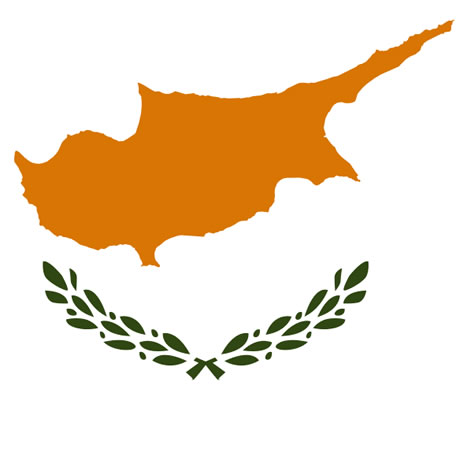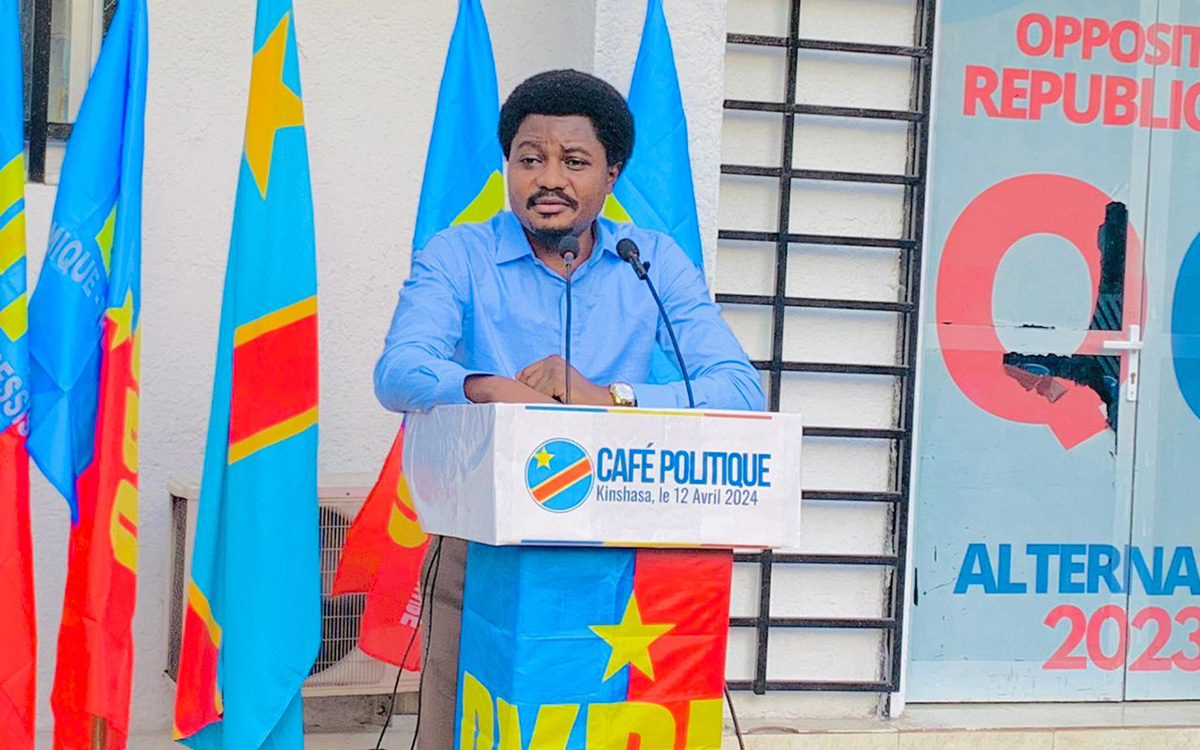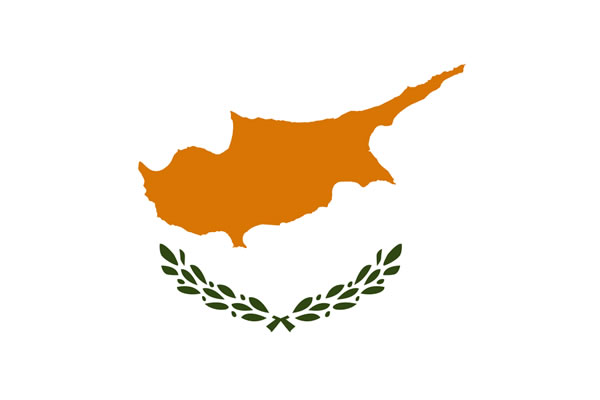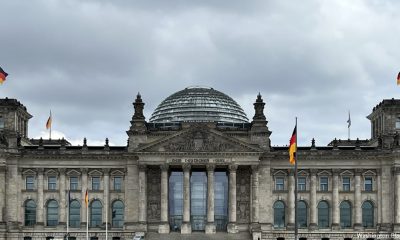World
Cyprus lawmakers approve civil unions bill
The measure passed by a 39-12 vote margin

Lawmakers in Cyprus on Nov. 26 approved a bill that would allow same-sex couples to enter into civil unions.
The Civil Partnership Bill passed in the Cypriot House of Representatives by a 39-12 vote margin.
Three parliamentarians abstained from the vote.
“Civil union is a crucial bill for Cyprus on many levels,” said ACCEPT-LGBT Cyprus, a Cypriot advocacy group, in a statement it released after the vote. “Mainly, it sets new foundations for the building of any future dialogue regarding human rights issues; but especially for being the first time ever that equality has been recognized in practice amongst all citizens, for matters regarding personal relationships, family and love.”
“Same-sex couples are no longer excluded from that; the bill in itself is a crucial attempt for their integration and acceptance,” it adds. “Once a state legally recognizes these rights, more and more members of our society will be in position to form proper family values, thus encouraging even more people to follow in their steps.”
ILGA-Europe Executive Director Evelyne Paradis also applauded the vote.
“Same-sex couples and their families are just as deserving of protection as their heterosexual friends and neighbors,” she said in a statement. “This is not about giving one group ‘special rights’ but about recognizing the wonderful diversity of families that live in Europe.”
The British Commission in Nicosia, the Cypriot capital, also celebrated the bill’s passage.
Cyprus is a divided island in the eastern Mediterranean Sea.
Cypriot lawmakers in 1998 decriminalized homosexuality. Northern Cyprus — formally known as the Turkish Republic of Northern Cyprus — in January 2014 became the last European jurisdiction to legalize consensual same-sex sexual acts.
A law banning employment discrimination based on sexual orientation took effect in 2004 before Cyprus joined the E.U. The country in 2013 amended its penal code to ban anti-LGBT discrimination.
Former President George Vassiliou was among the thousands of people who took part in the country’s first LGBT Pride parade that took place in Nicosia in 2013. A local advocate described the event to the Washington Blade as a “huge success,” despite reported clashes between police and Orthodox Christians who protested it.
@UKinCyprus #CivilUnion bill passed by Parliament of #Cyprus. #humanrights #LGBT @AcceptCY #historymadeCY pic.twitter.com/10zWZjEeuU
— UK in Cyprus (@UKinCyprus) November 27, 2015
India
Indian political parties for the first time include LGBTQ rights in election platforms
Voters will begin to cast ballots on April 19

The world’s largest democratic exercise will begin in India on April 19 as citizens begin to cast their votes in the country’s election.
This year’s election is different because national level political parties for the first time are promising to extend marriage rights to same-sex couples as part of their election platforms.
The Indian National Congress, one of India’s oldest political parties, promised after wide consultation that it would introduce a bill that would recognize civil unions between couples who are part of the LGBTQ community. The party, which has governed India for the majority of the period since independence from the U.K. in 1947, has refrained from taking a stance on laws that include Section 377, which criminalized consensual same-sex sexual relations.
Then-Health Minister Gulam Nabi Azad in 2011 when the INC was in power said homosexuality is a disease. He made the controversial comment while speaking at an HIV/AIDS conference in New Delhi, the Indian capital.
“Unfortunately, this disease has come to our country too,” said Azad. “Where a man has sex with another man, which is completely unnatural and should not happen but does.”
When the Delhi High Court was hearing the Naz Foundation case, the Home Affairs Ministry opposed the striking down of Section 377 based on its belief that homosexuality cannot be morally condoned. The INC never struck down Section 377, which criminalized homosexuality, in parliament.
A 5-judge panel on the Supreme Court on Sept. 6, 2018, decriminalized consensual same-sex sexual relations.
The Communist Party of India (Marxist) on April 4 unveiled its platform with a range of socialist commitments, including support for LGBTQ rights. Among these pledges is to amend the Transgender Persons (Protection of Rights) Act 2019 to address community concerns and ensure legal recognition and protection for same-sex couples akin to marriage.
The platform also outlined plans to introduce a bill similar to the Special Marriage Act of 1954, which allows partners to be listed as dependents and facilitating like inheritance, alimony in the event of divorce and other issues. The party further pledged to enact a comprehensive anti-discriminatory bill that would include LGBTQ people, ensure quotas in educational institutions and implement horizontal reservations in employment.
Addressing the issue of crimes against LGBTQ people, the platform promised to treat such offenses on par with crimes against heterosexuals. The platform also calls for tackling bullying, violence and harassment of gender non-conforming and LGBTQ people in educational settings, enforcing anti-hazing policies and combating hazing based on sexual orientation and gender identity.
The platform further touched issues related to transition and informed consent.
The Special Marriage Act of 1954 is a law that provides for civil unions among Indians and Indian nationals who live abroad, regardless of the religion or faith followed by either party. This law enables people from two different religious backgrounds to enter into marriage. Parliament in 2019 passed the Transgender Persons (Protection of Rights) Act that extended rights to trans people.
Brinda Karat, a former member of the Rajya Sabha, the upper house of the Indian Parliament, and leader of the Communist Party of India (Marxist), spoke with the Washington Blade and said the current government has homophobic ideas that are not acceptable to the party.
The ruling government under Prime Minister Narendra Modi is striving to secure more than 400 parliament seats in the upcoming election, aiming for a substantial majority.
Various polls conducted by Indian news organizations indicate a probable victory for the ruling Bharatiya Janata Party. In response to the BJP’s dominance, Congress and several national and regional parties have joined forces as the Indian National Developmental Inclusive Alliance.
This alliance comprises 26 opposition political parties. Despite its formation, however, there is no clear coalition strategy in place and only two parties have included LGBTQ-specific policies in their election platforms.
The Blade reached out to Congress’ spokesperson for comment, but has not received a response. The BJP also did not respond to a request for comment.
The party has yet to release its election platform.
Ankush Kumar is a reporter who has covered many stories for Washington and Los Angeles Blades from Iran, India and Singapore. He recently reported for the Daily Beast. He can be reached at [email protected]. He is on Twitter at @mohitkopinion.
Africa
Ugandan activists appeal ruling that upheld Anti-Homosexuality Act
Country’s Constitutional Court refused to ‘nullify’ law

Twenty-two LGBTQ activists in Uganda have appealed this month’s ruling that upheld the country’s Anti-Homosexuality Act.
The Constitutional Court on April 3 refused to “nullify the Anti-Homosexuality Act in its totality.”
President Yoweri Museveni last May signed the law, which contains a death penalty provision for “aggravated homosexuality.”
The U.S. subsequently imposed visa restrictions on Ugandan officials and removed the country from a program that allows sub-Saharan African countries to trade duty-free with the U.S. The World Bank Group also announced the suspension of new loans to Uganda.
Media reports indicate Sexual Minorities Uganda Executive Director Frank Mugisha and Jacqueline Kasha Nabagesara are among the activists who filed the appeal.
Africa
Congolese lawmaker introduces anti-homosexuality bill
Constant Mutamba’s measure seen as distraction from country’s problems

A member of the Democratic Republic of Congo’s National Assembly who is a leader of the country’s opposition party has introduced a bill that would criminalize LGBTQ people.
Part of the bill that Constant Mutamba, leader of the Dynamic Progressive Revolutionary Opposition platform, has put forth states anyone who “commits a homosexual act (including acts and gestures) will be liable to a 5- or 10-year prison sentence.”
The country in recent years has seen government leaders and civic society target the community with anti-LGBTQ sentiments.
The Superior Council for Audiovisual and Communication, Media Regulatory Authority last June cautioned the media against showing LGBTQ-specific conversations. Several activists have criticized Mutamba’s bill, saying it seeks to move attention away from governance, service delivery and other pertinent issues in the country.
Sirius Tekasala, a human rights activist, said a person’s sexual orientation does not impact issues of governance.
“The proposed bill does not go in the direction of improving the socio-economic life of the Congolese people,” said Tekasala. “It’s not homosexuals who prevent you from doing your job well or from breathing. This is a violation of human rights.”
Mbuela Mbadu Dieudonné, a social analyst and trade unionist, said the bill is just a way of deviating people from the pertinent issues.
“He should suggest how to get the Congolese people out of this precariousness of life which is growing on a daily basis,” said Dieudonné. “When we don’t know the real problems of the Congolese people, he sets himself up as the great director of scenes to distract the Congolese people.”
Many Congolese, however, seem to support the bill and have applauded Mutamba for drafting it.
This is not the first time that such kind of a bill has been drafted.
An anti-homosexuality bill introduced in 2010 would have sentenced people who engage in consensual same-sex sexual relations to between three and five years in prison. The measure, however, did not become law.
Mutamba’s bill, however, may pass with Uganda’s Anti-Homosexuality Act in effect. The country’s Constitutional Court earlier this month upheld it. Burundi, Tanzania and other neighboring countries are also considering similar measures.
Many Congolese people view LGBTQ rights as a Western phenomenon that disregards their religious and cultural beliefs. LGBTQ Congolese are among those who have fled the country and sought refuge in the Kakuma refugee camp in Kenya and other places.
Consensual same-sex sexual relations are not criminalized in the Democratic Republic of Congo, but Congolese law does not recognize same-sex marriages.
-

 LGBTQ Non-Profit Organizations5 days ago
LGBTQ Non-Profit Organizations5 days agoDay of [no] silence, a call to speak out against anti-LGBTQ+ hate
-

 Africa2 days ago
Africa2 days agoCongolese lawmaker introduces anti-homosexuality bill
-

 Colorado4 days ago
Colorado4 days agoFive transgender, nonbinary ICE detainees allege mistreatment at Colo. detention center
-

 Politics4 days ago
Politics4 days agoFirst lady warns Trump is ‘dangerous to the LGBTQ community’ at HRC event










